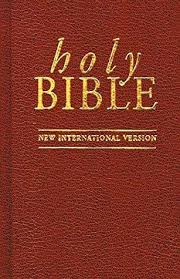December 14, 2022
Which African Nations got to the Round of 16 & Quarterfinal of the FIFA World Cup?
Morocco was the first African nation in 1986 to reach the Round of 16 at the FIFA World Cup, which woke Africa up, then Cameroon did the same and got to the quarterfinal in 1990; Senegal in 2002; and Ghana in 2010, while Nigeria got to the Round of 16 in 1994, 1998, and 2014 as well as Ghana in 2006 and Algeria in 2014.
Which African Nation has Reached the Semifinal of the FIFA World Cup?
Today (12/14/22), Morocco again, became the first African nation to play a semifinal match in the 2022 World Cup against France in Qatar and they beat soccer giants such as Belgium, Spain, and Portugal to get there. Why is Morocco the flag-bearer of African soccer at the World Cup despite the fact that they are not even the strongest in African soccer?
What is Morocco’s Stats at the FIFA World Cup & African Cup of Nations?
Since 1990 to 2018, there have been eight FIFA World Cups and Morocco has only qualified for three without making it past the group stage. Also, since 1990, there have been 17 African Cup of Nations and Morocco only got to the final in 2004, but was never a final four again in that period. Since 1957 when the African Cup of Nations started, Morocco has only been African champion in 1976. Where are the African soccer giants at the FIFA World Cup?
Why Has African Nations not Reach the Final Four of the FIFA World Cup Before 2022?
Many African teams, such as Nigeria, Cameroon, Ghana, Algeria, Egypt, and Senegal are tough enough to do exactly what Morocco has done today, but have been unable to go past the Round of 16 or quarterfinal stage. As soon as many African countries get past the group stage, you will read of players striking because they have not been paid or given their bonuses in almost every World Cup I can remember. Many African soccer administrators started to discourage the African teams because they do not believe that Africans should or can go further than Round of 16 or quarterfinal. We hear that rather than paying the coaches and players their bonuses, some African administrators would rather use the money for shopping and womanizing with foreign ladies abroad. Some even accuse the players and coaches of not being patriotic enough because they already make enough money in their club leagues in Europe. FIFA have even faulted many African administrators publicly for hiring substandard foreign coaches for the World Cup and just months to the event, booking lowly rated hotels for their Europeans based players miles away from their match venues, and having huge costs for their short time at the event.
What is Sub-Saharan African Stats at the FIFA World Cup & African Cup of Nations?
Morocco has thrown many giants down, but lost to France today in the semifinal. Black Africans or sub-Saharan Africans lately have had better and stronger soccer teams within the continent, but they seem not to be able to achieve what Morocco has done. Since 1990 to 2018, there have been eight FIFA World Cups and seven sub-Saharan African teams out of eight (88%) have made it to the Round of 16 and quarterfinal. Also since 1990, there has been 17 African Cup of Nations where 10 out of the 17 winners (60%) and 13 out of the 17 runner-ups (77%) are sub-Saharan African teams. Why have the sub-Saharan African teams not won the FIFA World Cup or reached the final since 1990 if Morocco can actually get to the semifinal?
What Will Make African Nations the Teams to Beat at the FIFA World Cup 2026 & 2030?
Just as Morocco inspired African soccer in 1986 and led African teams to make reaching both the Rounds of 16 and quarterfinal a tradition from 1990 to 2014, I believe what they have done in 2022 will inspire African teams to make reaching the semifinal and the final of the World Cup a global expectation for 2026 and 2030. This will be possible because African soccer fans have seen soccer giants fall before Morocco to get to the semifinal of the 2022 FIFA World Cup and they will expect nothing less from their teams, who are considered better than Morocco. African soccer administrators are now going to be forced to change both their mindset and attitude to deliver and match the new Moroccan wave on the world stage for World Cups 2026 and 2030. Get 15% – 40% off Language CDs & Books









